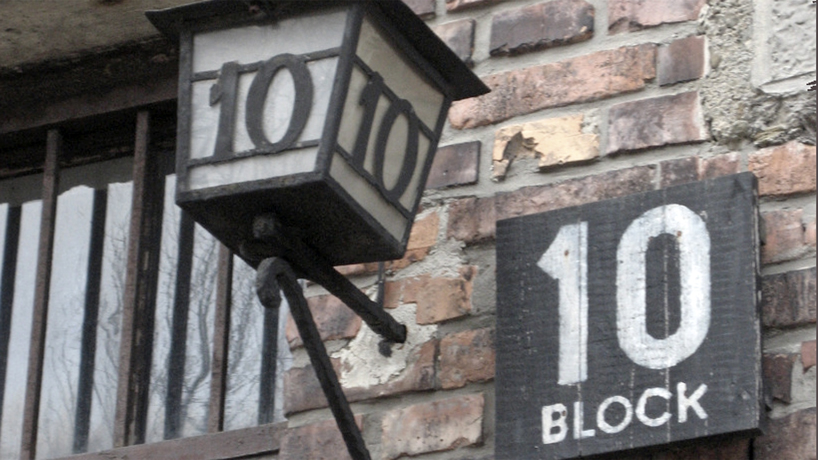
“Made in Auschwitz: The Untold Story of Block 10” will be shown at 3 p.m. Sunday at Plaza Frontenac Cinema as part of the St. Louis International Film Festival. (submitted photo)
A new documentary film playing next week at the St. Louis International Film Festival shines a light on the sinister but largely forgotten story of Carl Clauberg, a German doctor who worked alongside Josef Mengele at Auschwitz.
Clauberg was a gynecologist noted for his research in birth control and fertility before World War II, but he went on to conduct experiments on women with the aim of uncovering an efficient means of mass sterilization during the Holocaust.
“Made in Auschwitz: The Untold Story of Block 10” deploys archival materials and interviews with experts and historians to reveal the details of Clauberg’s work. But the audience also hears testimony from a half-dozen survivors of the experiments, including a few who managed to have children after the war in spite of the inhumane and painful treatments.
A screening of the film is scheduled for 3 p.m. Nov. 17 at Plaza Frontenac Cinema.
“It is an untold story because really nobody is aware of it,” said Rita Csapo-Sweet, an associate professor of media studies in the Pierre Laclede Honors College at the University of Missouri–St. Louis who serves as the film’s American producer. “If you do a search for Mengele or Clauberg, everybody knows Mengele, nobody knows Clauberg.
“But the fact that the Nazis had this idea to not just do the genocide they were doing, but then to go ahead and perpetuate a kind of further genocide in mass numbers, that’s both scientifically and historically important.”
Csapo-Sweet and her late husband, Frederick Sweet, a longtime professor and researcher at Washington University in St. Louis, began investigating Clauberg more than a decade ago in the context of Sweet’s interest in doctors involved in genocide.
He had observed medical professionals at the center of major genocides of the 20th Century, starting with Armenia and continuing with the Holocaust, Bosnia and Rwanda.
“They were all, in a sense, masterminded by many medical professionals under the guise of ethnic cleansing,” Csapo-Sweet said. “He couldn’t get it out of his head how it was possible that a profession, where people take an oath to do no harm, could be involved in these horrific genocides.”
Csapo-Sweet and her husband published a paper about Clauberg in 2012 – a year before Sweet died – in the Israel Medical Association Journal.
German producer-directors Sylvia Nagel and Sonya Winterberg came across the paper a couple years after it was published while starting to conduct interviews with some of the few remaining survivors for the documentary project. It helped fill in some gaps in their own research.
They reached out to Csapo-Sweet in 2015, and she became part of the project as a producer.
The film debuted on television in Israel in May. It is being re-edited and will be shown in France and Germany. The film made its North American debut in late July at the San Francisco Jewish Film Festival.
Csapo-Sweet is excited it will be playing as part of the St. Louis International Film Festival with sponsorship from UMSL Global and the Honors College.
“This is not an old story,” Csapo-Sweet said. “This is a story that unfortunately we can take lessons from to the present day.”














